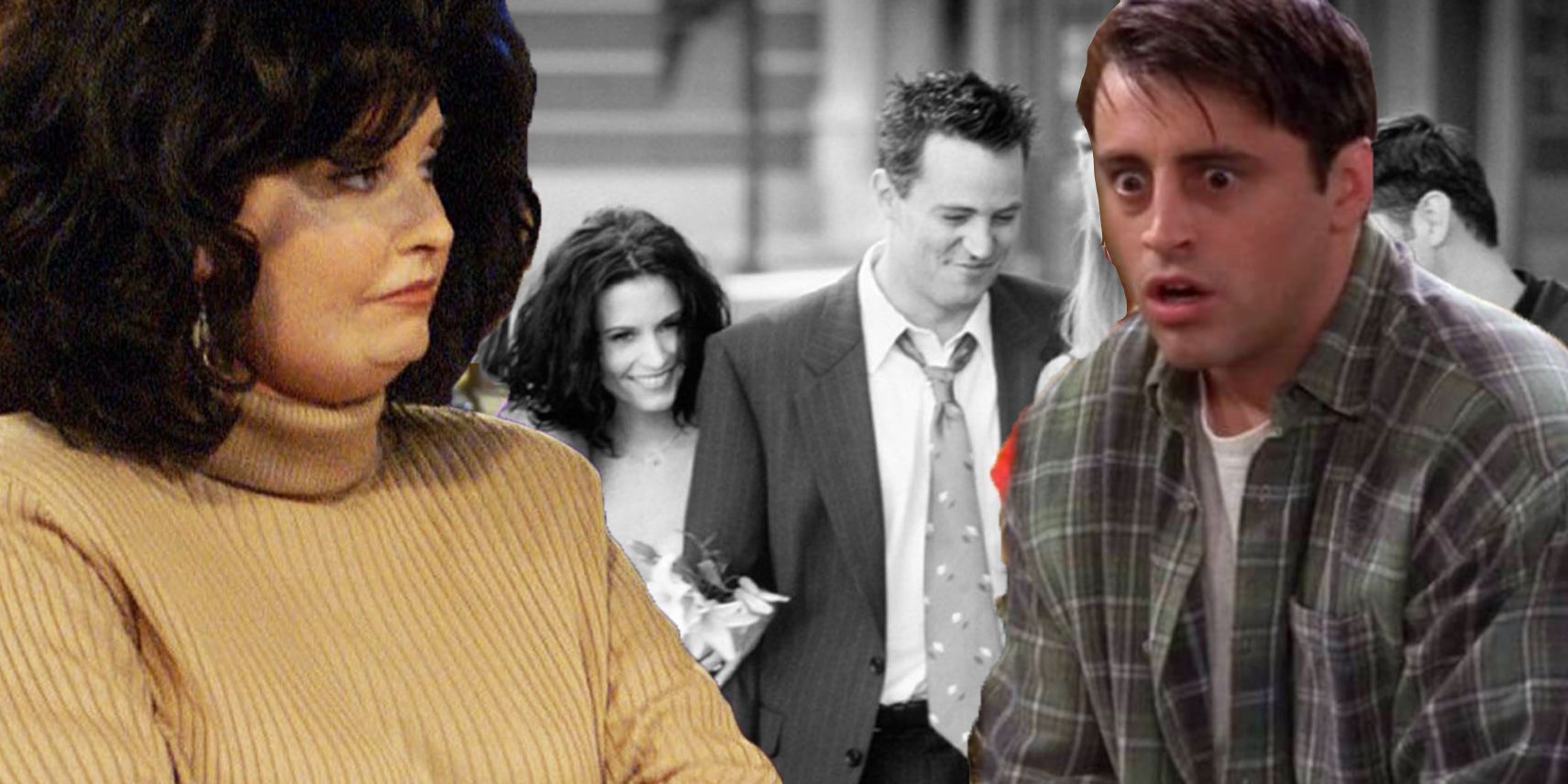
In recent years, a portion of Friends viewers has argued that the series hasn't aged well, and although some of the evidence is valid, there are even more reasons why Friends is timeless. Friends originally debuted in the mid-'90s, but the show has since found new life from syndication and streaming services. Many of those who watched the show during its first run still watch reruns while the next generation jumped on the bandwagon thanks to its binge-watching popularity.
Friends primarily focused on six people - Rachel Green (Jennifer Aniston), Monica Geller (Courtney Cox), Ross Geller (David Schwimmer), Chandler Bing (Matthew Perry), Phoebe Buffay (Lisa Kudrow), and Joey Tribbiani (Matt LeBlanc) - as they tackled life as twenty-somethings in New York City. Each character had ample screentime over the course of the decade-long sitcom while the group went on to enter their thirties. Even though some characters were more well-liked than others, as a group, they instantly won over the public.
Friends debuted in 1994 and ran for 10 seasons before concluding in 2004. The NBC sitcom, created by Marta Kauffman and David Crane, has since made its way on several lists highlighting the best TV shows of all-time. It's no question that Friends has succeeded in longevity, which explains why so many loyal fans continue to have interest in a reboot. That may never happen, but the cast is returning for a reunion special on HBO Max in the near future. The question remains, however, if Friends' legacy is tarnished because of certain aspects having aged poorly.
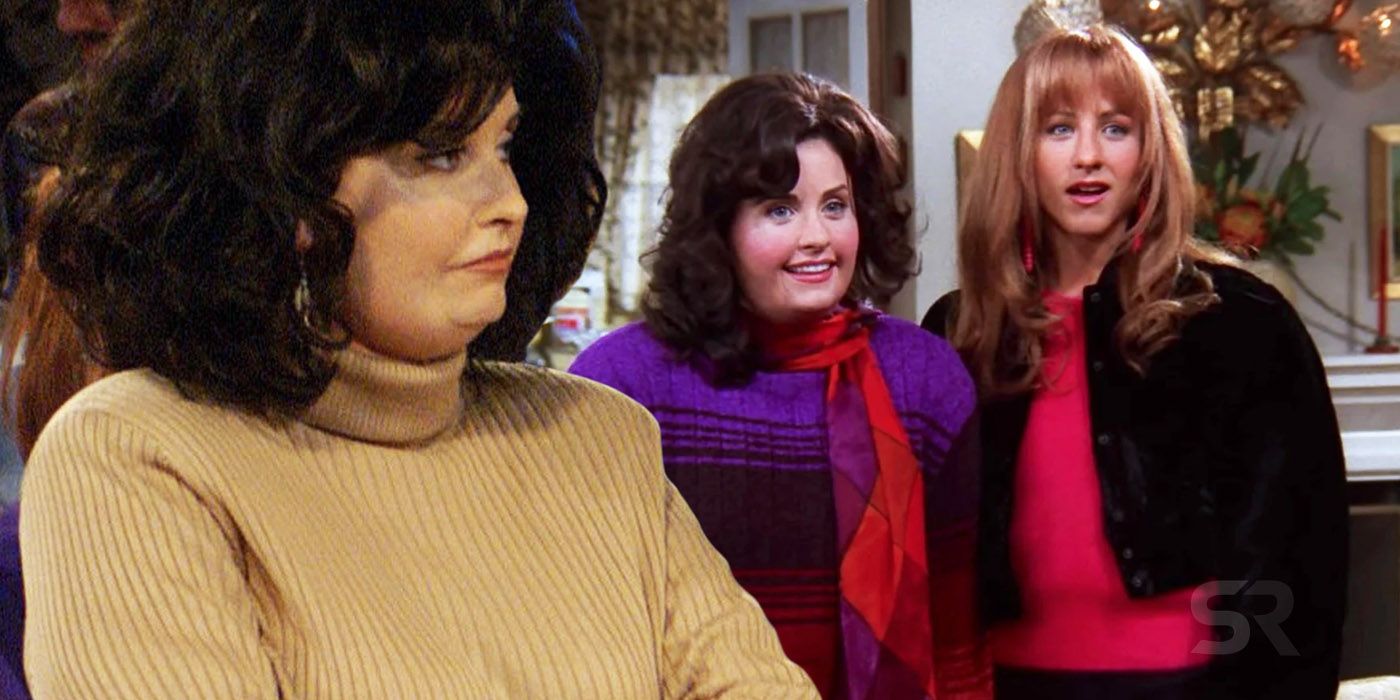
It's not a secret that elements from Friends haven't aged too well in the years since the sitcom ended. There's no arguing that certain episodes and overall themes feature some cringeworthy moments. This has led many newcomers or those who may have revisited the comedy to question the quality of Friends and whether it's still relevant to today's world. When looking back on the 10-season sitcom, viewers seem to point out a handful of problematic storylines.
The most frequently cited factor when discussing whether or not Friends has aged badly is the running gag of "Fat Monica." Throughout the series, Monica's extreme weight loss and how she turned her life around after her physical transformation has been a focal point to show. During flashbacks to when Monica was a teen, actress Courtney Cox would wear a "fat suit" as a comedic portrayal of the overweight version of her past self. She would then be the target of jokes until she got the last laugh after losing the weight.
Similar to the Monica situation, Friends seemed to have underlying tones of homophobia and being anti-trans, especially when it came to Chandler's cross-dressing father. Gay characters and other members of the LGBT community were often presented as taboo or another tool used to stir up jokes when interacting with the main cast. Speaking of the main cast, there was a lack of diversity among the key six that still doesn't sit well with viewers. New York City is one of the most diverse cities in the world, so it brings up the argument of why the writers developed characters who were strictly white and straight.
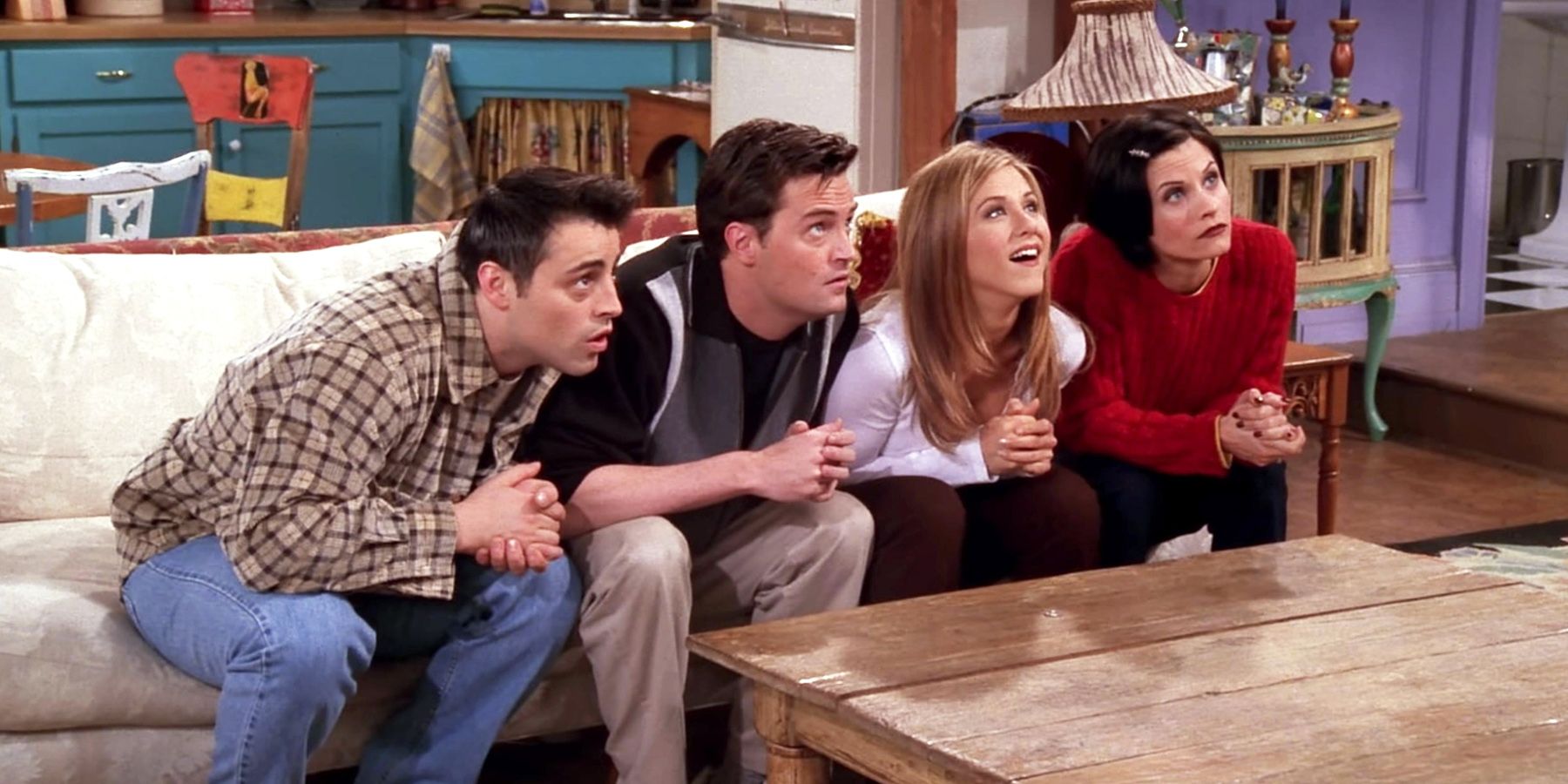
While all of the poorly aged factors in Friends are compelling, it's also important to remember that the series was a product of the early '90s. With the case of many shows, specifically when it comes to sitcoms, not every detail within the plot will be politically correct. A lot has changed on a cultural level since Friends premiered in 1994, and the same can be said from the time the series ended in 2004. Thankfully, as a whole, society has progressed on many levels, and even though the '90s don't seem too long ago, it can be a lifetime in the age of TV.
Many discussions involving sexuality, gender, or race may seem commonplace today, but in the '90s, a lot of topics were still considered taboo. A gay kiss between two males wasn't even featured on primetime TV until 1998 with That '70s Show. TV still had a lot of work to do to normalize differences in representation, but a lot of it had to do with what networks allowed at the time. Sadly, it took time for inclusivity.
Even Friends creators, Kauffman and Crane, regret several storylines that were featured in their series, including the representation of Chandler's transgender father. The creators have been outspoken about never taking into account that Friends would have such a long-lasting legacy. They never expected people to still be watching and talking about 15 or even 20 years later. There are certainly a lot of elements and jokes they would have liked to take back or adapt to today's expectations.
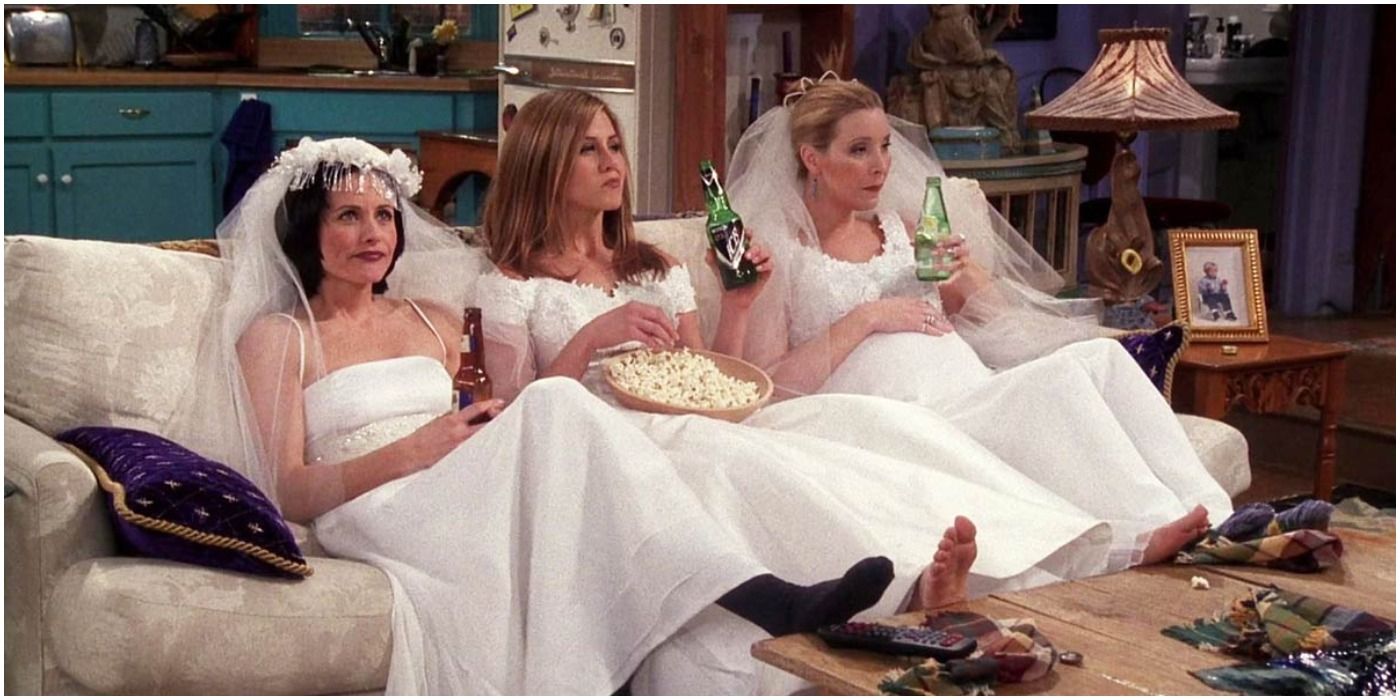
Although it's easy to look at what hasn't aged well on Friends, in several ways, the sitcom was ahead of its time. The most significant example stems from how the series portrayed the female characters. The lives of Rachel, Phoebe, and Monica were major focal points of the sitcom, but it was the latter's development in the early stages that proved the show had the power to be progressive. In the pilot episode, Monica slept with a man on their first date. The head of NBC at the time, Don Meyer, worried that fans would be turned off by Monica's promiscuous behavior. Instead, the audience members responded that they liked Monica even more and the network shouldn't slut-shame a main cast member.
It wasn't common for female characters to be portrayed as having casual sex in the world of '90s sitcom TV. Shows used men to face the dating world with that type of comfortable sexuality, so it was refreshing for viewers to see a gender-reversal of that trope. Each female character also had hopes and dreams when it came to their respective careers rather than just focusing on settling down with a family. Friends also proved that women could have strong friendships and not just be rivals vying for a man.
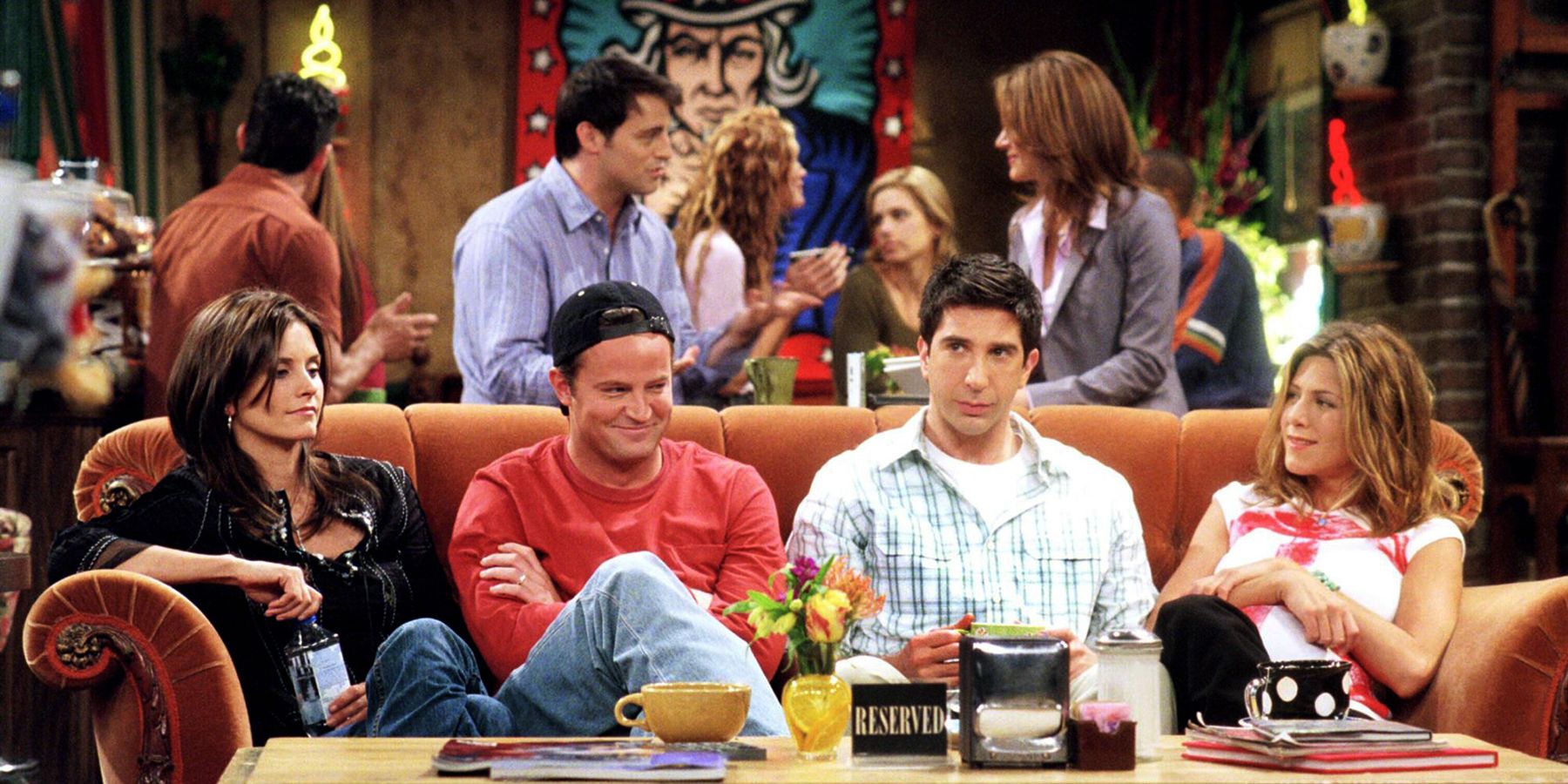
On the surface, there are still many themes within Friends that remain relatable. Viewers could probably admit that they've struggled with life after college or entering adulthood when it comes to dating, friendships, and careers. Those trials and tribulations were primary storylines within the series and something that a large portion of society can relate to. The comedy in the series was meant to lighten the hardships or to show that even the worst of situations wasn't the end of the world.
Due to this relatability, Friends can still be considered timeless. For this reason, the series continues to be influential to the world of sitcoms and storytelling. Several shows that came after used the Friends formula as a starting point including How I Met Your Mother. An ensemble of pals living in an exciting place while facing certain struggles is a vague plot to countless series and movies. It's certainly okay to question what no longer works for Friends, but it's impossible to deny why it still resonates for many.
from ScreenRant - Feed https://ift.tt/2PfRs8v


0 Comments